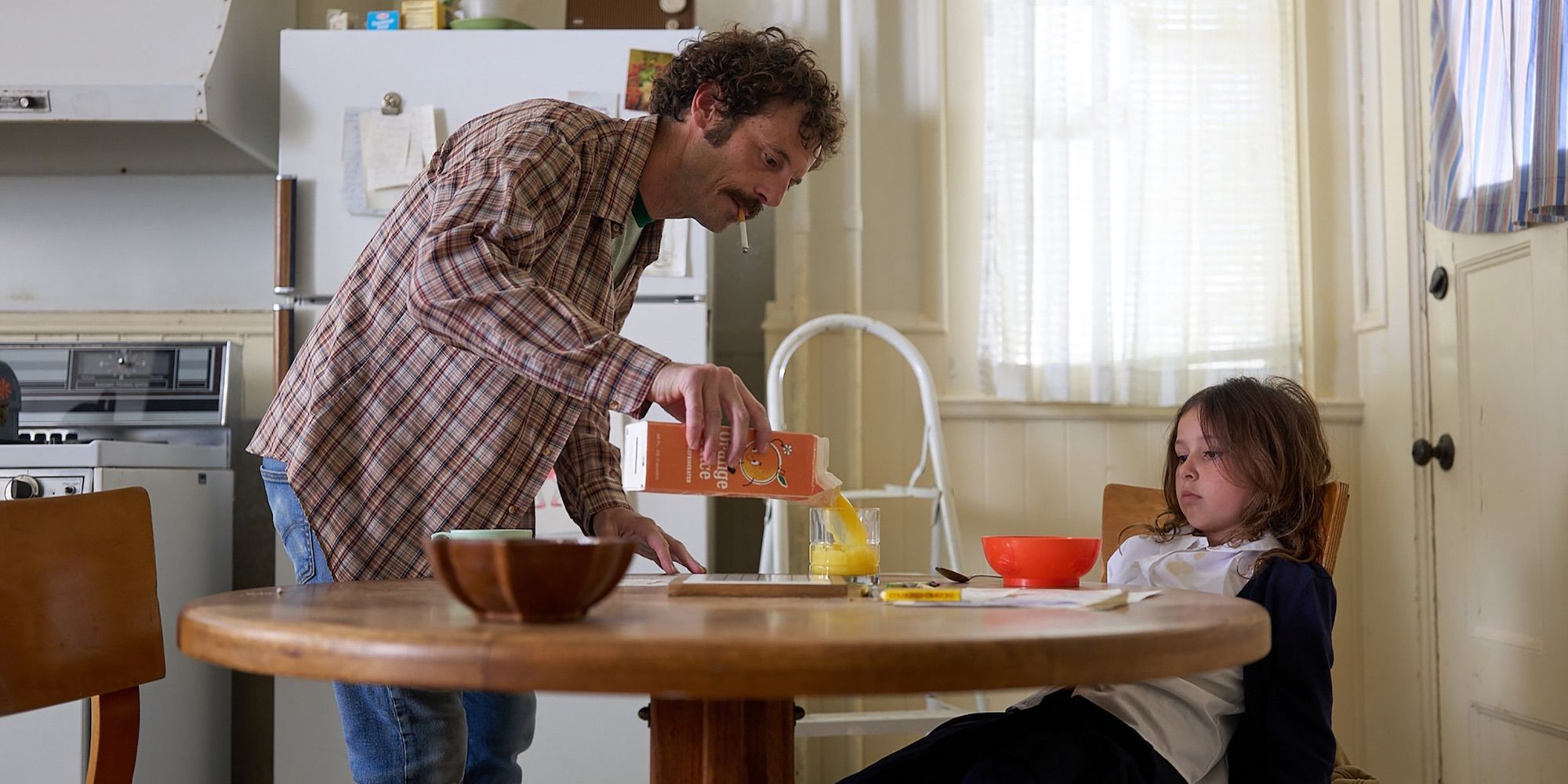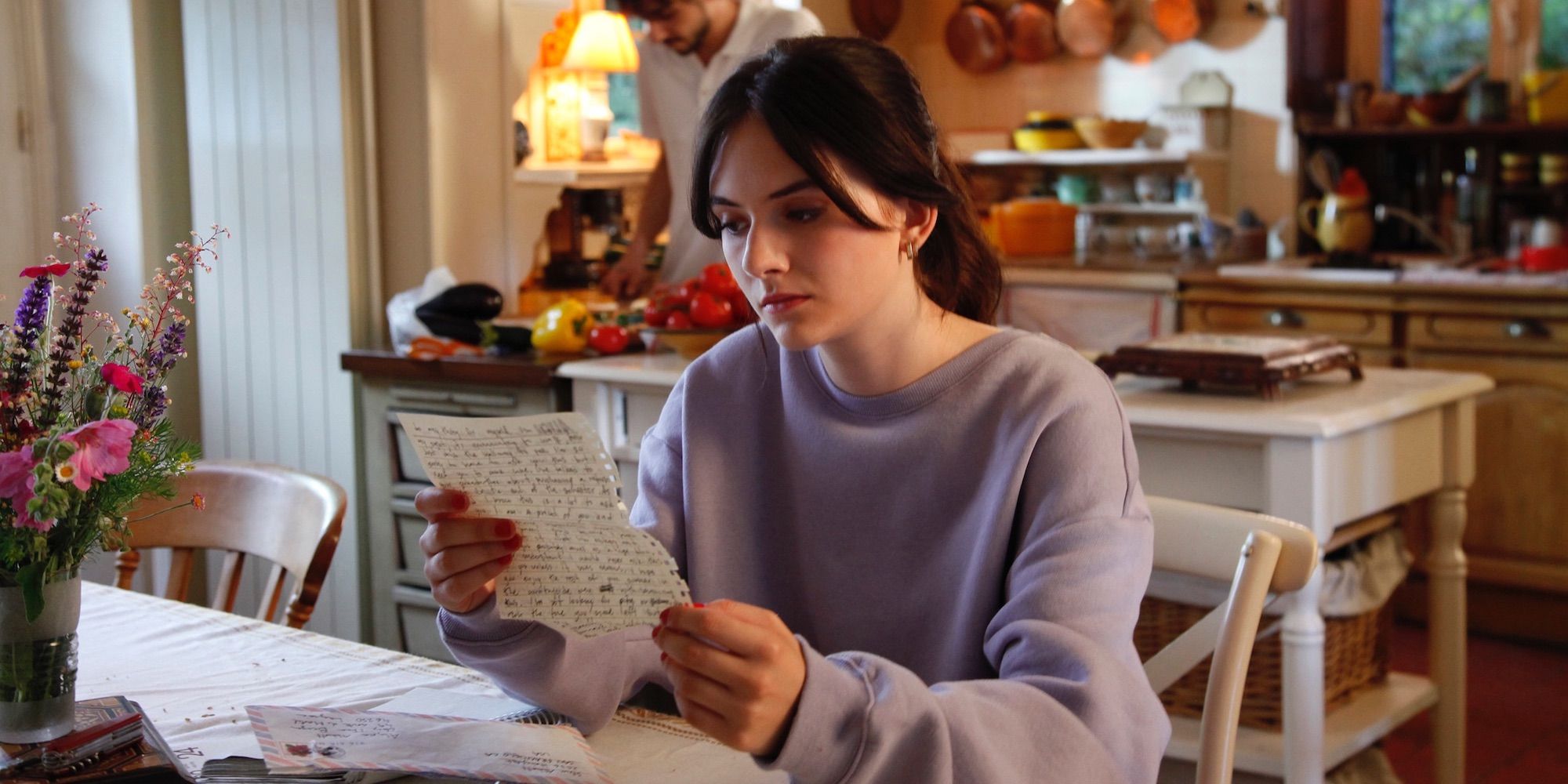Fairyland opens with an offscreen death. Alysia Abbott’s mother died in a car accident, and she’s left in the care of her father. The film, based on the memoir by Alysia Abbott, Fairyland: A Memoir of My Father, immediately brings the audience into the father/daughter dynamic at the center of the story. It firmly takes hold, allowing the myriad of emotions to wash over viewers. Fairyland, written and directed by Andrew Durham, showcases the imperfections of being a parent, of being human, and how one’s identity can shape someone else’s. Emotionally effective and often quite tender, the film boasts understated, powerful performances from Emilia Jones (who also stars in another Sundance film this year) and Scoot McNairy.
Following the death of his wife, writer Steve Abbott (McNairy) moves with his daughter Alysia (Jones, with Nessa Dougherty as the younger version of the character), to San Francisco, much to the displeasure of Alysia’s grandmother (Geena Davis). Steve is gay and Alysia, who’s been told her father now has relationships with other men because her mother was the only one for him, grows up amongst the queer community. As she gets older, however, Alysia struggles with her own identity, caught between friends who often say derogatory things about gay people and a father who doesn’t seem very interested in being there for her in a meaningful way. Set primarily in the 70s and 80s, Alysia and Steve must come to terms with themselves and each other while navigating their tenuous, yet affectionate, dynamic.
Fairyland is striking in its handling of imperfect parenting, and the ways in which it affects a child and her relationship with her parent. At the same time, the film explores identity and how the journey of self-discovery and growth continues well into adulthood. Alysia and Steve are often at odds with each other, especially as Alysia gets older and realizes that her father is a flawed human who has made his fair share of mistakes. That realization doesn’t really happen, though, until the two have more of an open and honest dialogue with each other, airing out the misconceptions about the past and the ways in which certain decisions impacted Alysia’s well-being and development. At its core, Fairyland’s portrayal of both characters is compassionate.
The film is also a great snapshot of the era Alysia lived through. San Francisco was going through a lot of change in the 70s and 80s, but there was a bit more openness towards the queer community than in other areas. Still, Fairyland showcases the changing times, the local laws that affected Steve and his friends, and the AIDS epidemic that killed so many. However, Durham’s film never forgets that the heart and focus of the story is the father/daughter relationship, and its attention to Steve and Alysia’s dynamic flourishes and shifts carefully and genuinely as the film goes on. Under Durham’s direction, Fairyland maintains a steady pace, unfolding the story through Alysia’s perspective — she watches, internalizes, lashes out, and works to understand her father and her childhood.
To that end, Steve gets the shorter end of the stick in terms of characterization. Since he is seen primarily through his daughter’s eyes, the scope of his story is limited to what Alysia witnesses and how she might interpret his actions. At the same time, Durham affords Steve a tremendous amount of empathy, and he isn’t one-dimensional. As the leads, Jones and McNairy are phenomenal in their roles. Jones subtly conveys Alysia’s frustration, affection, and hurt through her emotive eyes. There is a lot that goes unspoken, but Jones effectively showcases the ups and downs of her character’s feelings through intonation and body language.
The writing underscores both her and McNairy’s performances. For his part, McNairy imbues Steve with frenetic energy and longing. Steve’s a bit of an idealist and his attention is often unfocused, and the actor does a great job showcasing his struggles, confusion, pain, adoration, and everything in between. If anything, Fairyland ends up going on for too long, losing some of its momentum at different points, but it ultimately doesn’t take away from the film’s most touching moments, some of which will surely produce a tear or two.
Fairyland premiered at the 2023 Sundance Film Festival on January 20. The film is 114 minutes long and is not yet rated.



